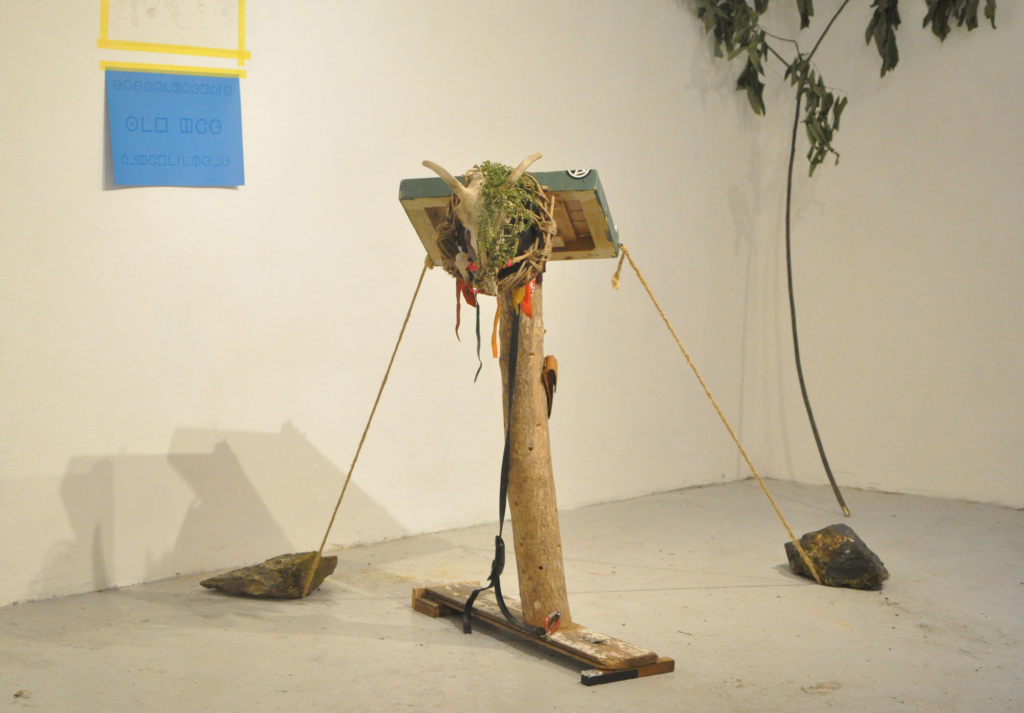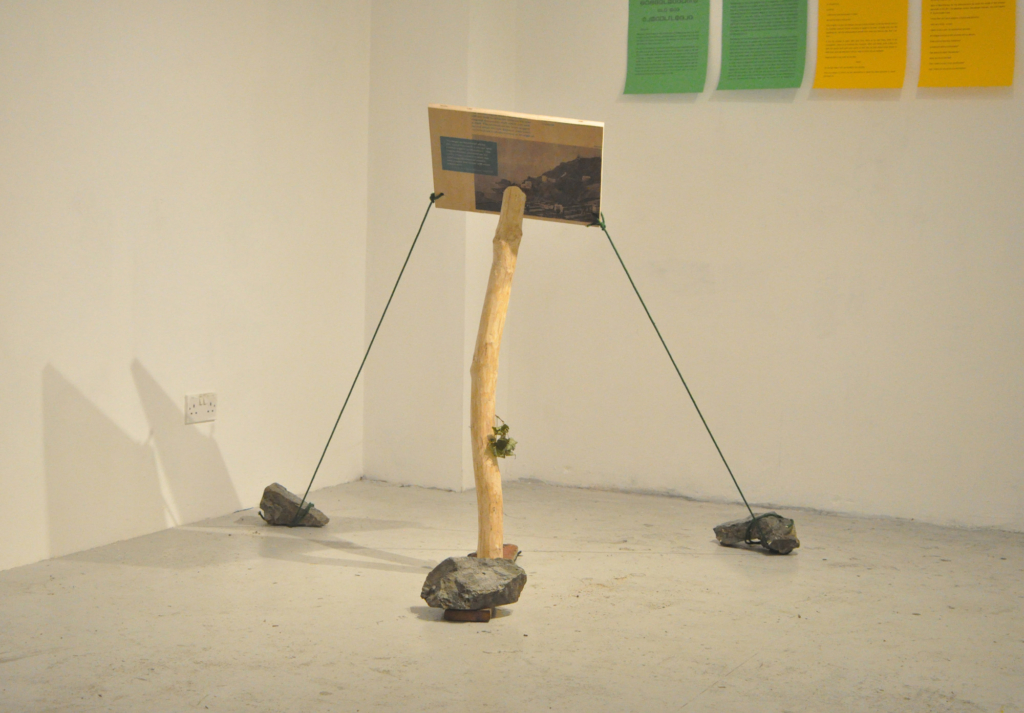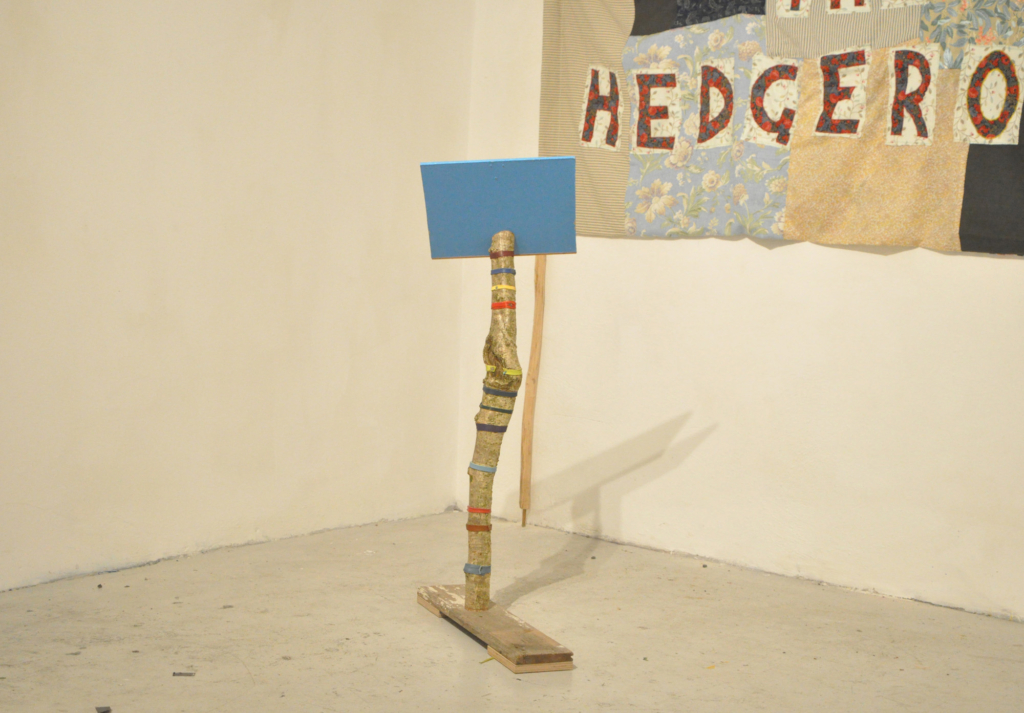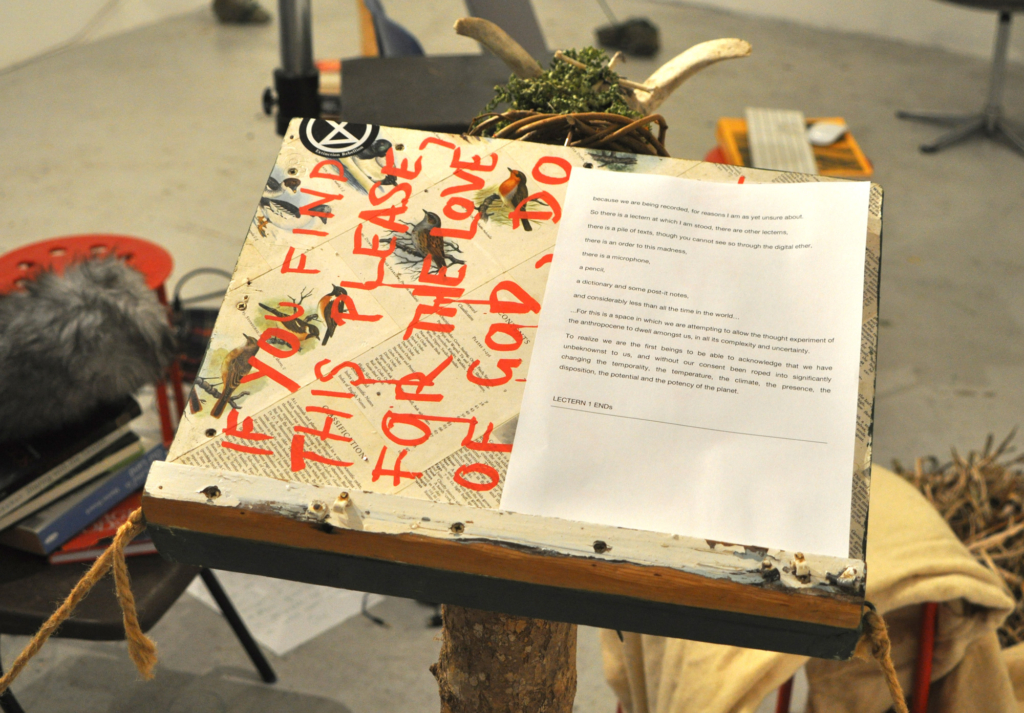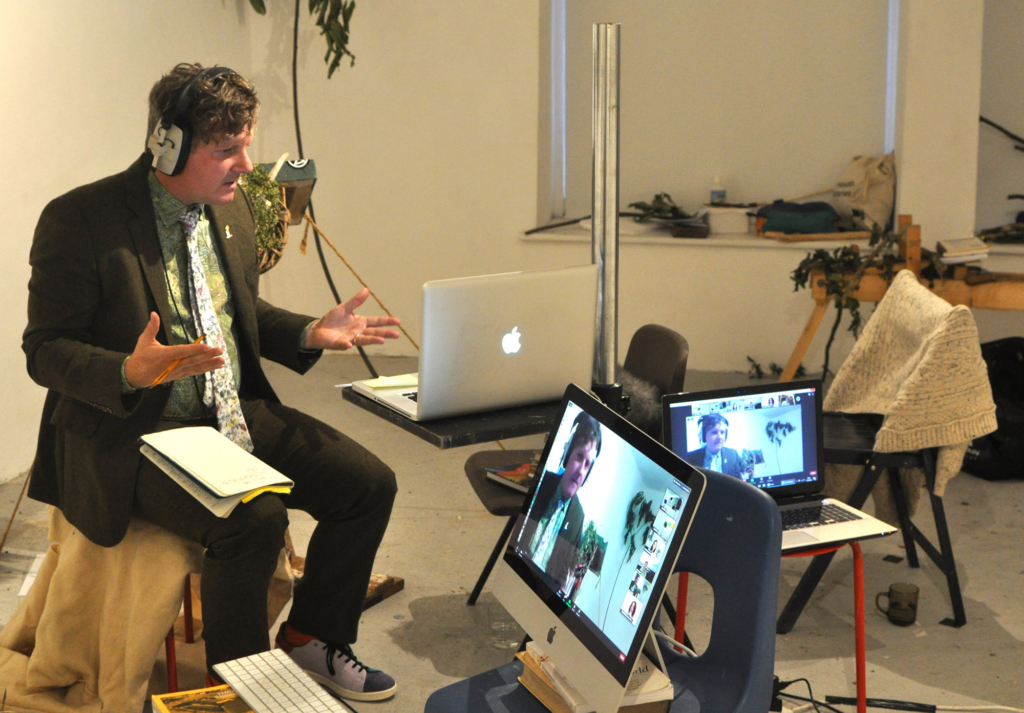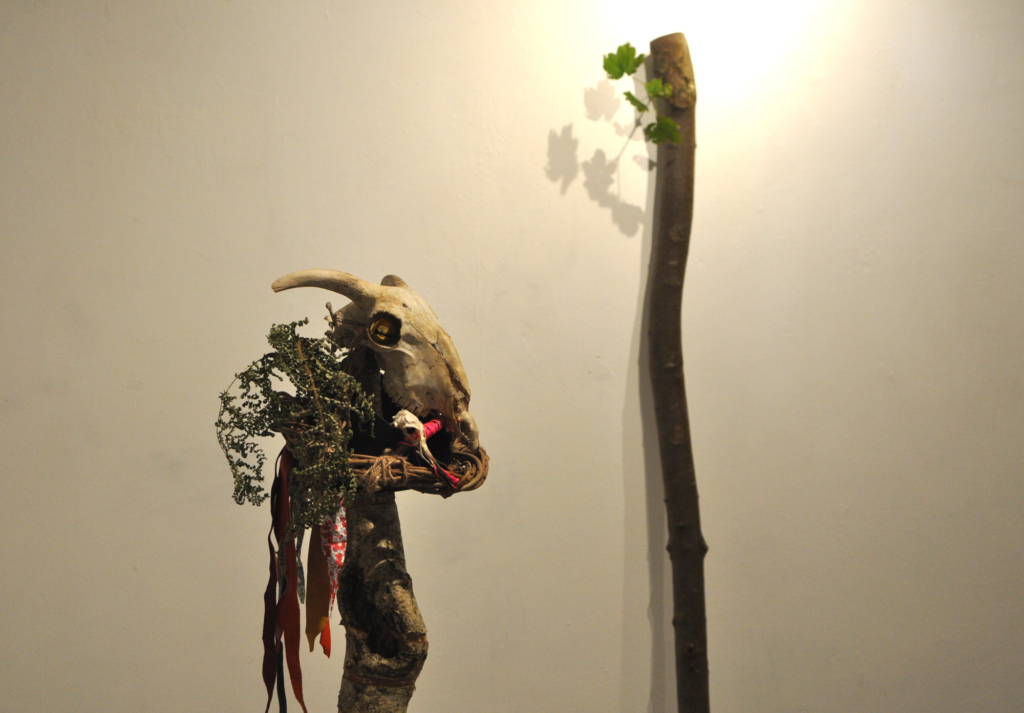Bibliotherapy for the Anthropocene is a performance about language, by people, for the anthropocene, for people and non-human beings, for consideration and time, for being, and being with, it is filled with awkward silences and unanticipated humour, for words are cheeky scamps, and they can be seriously funny, when we least expect them to be. This place is about not pretending that we know what words mean, but about putting our hand up, about confessing to our own uncertainty, and checking them in the dictionary, there is no demand to read, or to sit, merely a suggestion that to sit and to read and to listen is why many of you may have come tonight. And reading aloud we will stumble. We will fall. We will fail. We will encounter our uncertainty from a position of safety and comfort, between tea and biscuits, I trust you’ve all brought your tea and biscuits. We will mispronounce words like Bacteriocene because these are not words one is designed to encounter, let alone read aloud to strangers, and because we are being recorded, for reasons I am as yet unsure about…
Bibliotherapy for the Anthropocene was developed with the support of Plymouth Culture, Horizon and the Plymouth Athenaeum. It has subsequently been presented across the southwest in galleries, fields, quarries, woodlands, institutes, country houses and medieval halls. For bookings please contact me directly…
This iteration performed as Bibliotherapy for the Quarantine at Back Lane West, Redruth, Cornwall to an international live Zoom Audience as part of Culture Declares Emergency’s creative response to Lockdown 1. Commissioned and funded by the Eden Project and Arts & Culture at the University of Exeter the Symposium Art, Ecology, Emergency: Sustaining Practice featured Prof. Caitlin Desilvey (Exeter), Lucia Pietrouisti (Serpentine Gallery) and Mishia Curzon (Eden Project).
The next iteration of Bibliotherapy for the Anthropocene is due to take place in May 2021 as part of the OD Arts Festival in Somerset.
…so, there is a lectern at which I am stood, there are other lecterns,
there is one desktop computer, two laptops, four chairs, two stools, a weird monitor stand, and an assistant,
there is a pile of texts, though you cannot see so through the digital ether,
there is an order to this madness,
there is a microphone,
a pencil,
a dictionary and some post-it notes,
and considerably less than all the time in the world…
…For this is a space in which we are attempting to allow the thought experiment of the anthropocene to dwell amongst us, in all its complexity and uncertainty.
To realize we are the first beings to be able to acknowledge that we have unbeknownst to us, and without our consent been roped into significantly changing the temporality, the temperature, the climate, the presence, the disposition, the potential and the potency of the planet.
